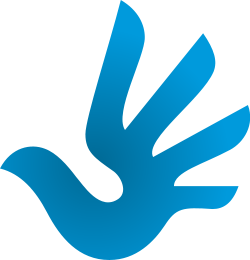| Year | Actions |
|---|
| 1979 | Shih Ming-teh organized a human rights campaign in Kaohsiung, Taiwan. This led to the Kaohsiung Incident characterized by three rounds of arrests and mock trials of political opponents of the ruling Kuomintang party and their subsequent imprisonment. |
| 1983 | President Raúl Alfonsin, of Argentina, decided to assume office on 10 December 1983, ending the military dictatorship that had ruled the country since 1976. The election of that day for his inauguration was related to human rights violations committed during the dictatorship. From then on, all presidential inaugurations have taken place on 10 December. |
| 2004 | |
| 2006 | In an interesting coincidence, former Chilean dictator Augusto Pinochet, known for human rights violations committed during his authoritarian rule, died of a heart attack on 10 December 2006, at the age of 91. [13] |
| 2008 | - Gay rights activists in the U.S. state of California urged people to support equal rights by "calling in 'gay'" to work. [14] This was in response to the renewed ban on gay marriage when Proposition 8 passed earlier in the year.
- Several people were detained in China after around 300 people signed an online petition titled Charter 08 for the government to improve human rights in the country. In Beijing, a small protest was broken up that took place outside the foreign ministry. [15]
- UNYA Australia celebrated Human Rights Day with the write4rights campaign, asking young people to contribute a message about human rights by phone or on a website for display in Australian State capital cities. [16]
- Amnesty International organised a large event in Paris, France, to commemorate the 60th anniversary of the UN resolution. [17]
- Celebrations took place in Phnom Penh and around Cambodia, including a march by 5000 people, and a further 1000 people releasing balloons, organised by NGOs. [18]
- Other celebrations and events took place in Russia [19] and India. [20]
|
| 2009 | 10 December 2009 marked as 61st anniversary of the Universal Declaration of Human Rights. Tom Malinowski from Human Rights Watch in Washington, D.C., commented that there had been progress in human rights over the last 40 years: "I think there is greater awareness around the world that people have fundamental rights and that those rights are enshrined in both law domestically and internationally". [21] |
| 2011 | Following a year of protest in many countries, from Tunisia to Cairo to the Occupy movement, the theme of 2011 recognised the significance of social media and technology in assisting human rights defenders in new ways. [22] |
| 2012 | Inclusion and the right to participate in public life was the theme of 2012 Human Rights Day. The focus in 2012 was on all people to make their voices heard and be included in political decision making. "My Voice Counts" slogan was seen in the occupy movement around the world in protest of economic, political and social inequality. [23] |
| 2013 | Celebrating twenty years working for your rights was the theme of the 2013 Human Rights Day celebration. Twenty Years ago the creation of the position of the High Commissioner for Human Rights was established which empowered an official, independent voice to speak worldwide for human rights. [24] |
| 2014 | Every day is Human Rights Day is the slogan for the year 2014. Human Rights 365 celebrates the Universal Declaration on Human Rights which states that everyone, everywhere, at all times are entitled to their human rights. Human Rights belong to everyone equally and "binds us together as a global community with the same ideals and values." [25] |
| 2015 | The theme for 2015 is "Our Rights, Our Freedoms, Always." [3] |
| 2016 | The theme for 2016 is "Stand up for someone's rights today!" [26] |
| 2017 | The theme for 2017 is "Let's stand up for equality, justice and human dignity" [27] |
| 2018 [28] | The theme for 2018 is "stand up for the human rights" |
| 2019 | Civil Human Rights Front organised a rally in Hong Kong on the Sunday, 8 December to mark the Human Rights Day two days away. The organiser estimated about 800,000 people took part, while the police had an estimate of 183,000 people. [29] The march started from Victoria Park in Causeway Bay and was the biggest of its kind since the march in mid-August as part of 2019–20 Hong Kong protests movement in 2019. [30] Citizens were calling for their five demands, including an independent inquiry into Police misconduct allegations during the 2019–20 Hong Kong protests that occurred in the city during the past 6 months, and also universal suffrage. |
| 2020 [31] | The theme for 2020 is "Recover Better – Stand Up for Human Rights". |
| 2021 | The theme for 2021 is "Equality - Reducing inequalities, advancing human rights". [32] [33] |
| 2022 | The theme for 2022 is "Dignity, Freedom and Justice for All". [34] |
| 2023 | The theme for 2023 is "Freedom, Equality and Justice for All". [35] |
| 2024 | The theme for 2024 is "Our Rights, Our Future, Right Now". [36] |
| 2025 | The theme for 2025 is "Human Rights, Our Everyday Essentials" [37] |



